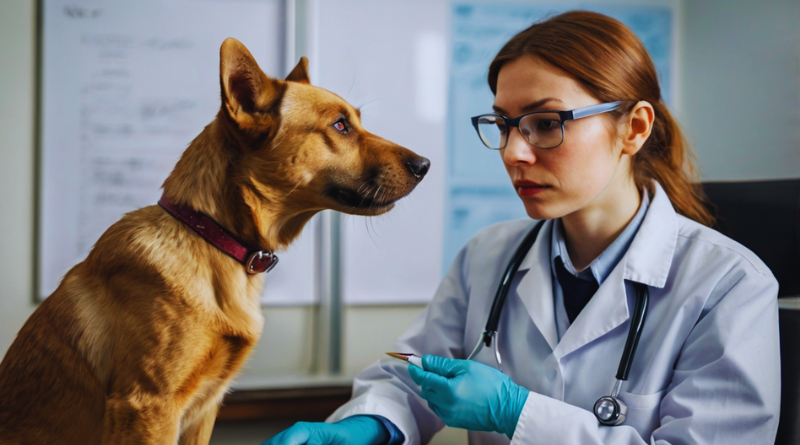Allergic reactions in pets can range from mild itching to severe, life-threatening conditions. It’s crucial for pet owners to recognize the signs and know how to respond quickly and effectively. In this post, we’ll explore how to handle severe allergic reactions in pets to ensure their safety and well-being.
Recognizing the Symptoms of Severe Allergic Reactions in Pets
Severe allergic reactions can manifest in various ways, including:
Swelling
Swelling of the face, lips, or eyes can be one of the first signs of a severe allergic reaction. This swelling can happen quickly and may cause your pet discomfort. It’s important to act swiftly to minimize the impact.
Difficulty Breathing
Rapid or labored breathing is another serious symptom. If you notice your pet struggling to breathe, it could indicate that their airway is affected. Ensuring a clear airway is crucial during such events.
Hives
Raised, red patches on the skin, known as hives, are a common sign of an allergic reaction. These can be itchy and uncomfortable for your pet, and it’s essential to prevent them from scratching.
Vomiting or Diarrhea
Gastrointestinal distress, such as vomiting or diarrhea, can occur during a severe allergic reaction. This can be alarming and requires immediate attention to prevent dehydration.
Anaphylactic Shock
Anaphylactic shock is a sudden, severe allergic reaction that can cause collapse. This is a life-threatening condition and needs emergency veterinary care. It’s crucial to recognize the signs early.
Immediate Actions to Take for Severe Allergic Reactions in Pets
If you suspect your pet is having a severe allergic reaction, follow these steps:
- Stay Calm: Your pet can sense your anxiety, so remain as calm as possible. This helps in managing the situation more effectively.
- Remove the Allergen: If possible, identify and remove the source of the allergy. This can prevent further exposure.
- Administer Antihistamines: If your vet has prescribed antihistamines for emergencies, give the recommended dose. Ensure you follow the dosage instructions carefully.
- Seek Emergency Veterinary Care: Contact your vet or an emergency veterinary clinic immediately. Quick action can save your pet’s life.
Additional Tips for Managing Severe Allergic Reactions in Pets
Dealing with severe allergic reactions in pets can be challenging, but here are some additional tips to help manage the situation:
Keep Emergency Contacts Handy
Always have the contact information for your vet and the nearest emergency veterinary clinic readily available. Time is crucial in severe allergic reactions, and quick access to professional help is vital.
Monitor Your Pet
After administering any initial treatment, closely monitor your pet for any changes in their condition. Look for improvements or any signs that the reaction is worsening. Continuous observation can help in making timely decisions.
Prepare an Emergency Kit
Have an emergency kit ready that includes antihistamines, any prescribed medications, and contact information for emergency veterinary services. This can be a lifesaver in critical situations. Additionally, include items like gauze, medical tape, and a digital thermometer.
Preventing Future Reactions of Severe Allergic Reactions in Pets
To prevent future allergic reactions, consider the following:
Identify Triggers
Work with your vet to identify and avoid allergens that may cause reactions in your pet. This might include certain foods, environmental factors, or even insect bites. Keeping a diary of your pet’s reactions can help in pinpointing specific triggers.
Create an Allergy Action Plan
Have a plan in place for how to respond to allergic reactions. This should include having medications on hand and knowing the quickest route to the emergency vet. Regularly review and update this plan with your vet.
Regular Check-Ups
Regular vet visits can help manage and monitor your pet’s allergies. Your vet can provide guidance on preventing and treating allergic reactions effectively. Scheduled check-ups also help in early detection of potential allergens.
Conclusion
Severe allergic reactions in pets require prompt and effective action. By recognizing the symptoms, taking immediate steps, and working with your vet, you can help ensure your pet’s health and safety. Always be prepared and stay vigilant to provide the best care for your furry friend.
Sources:

